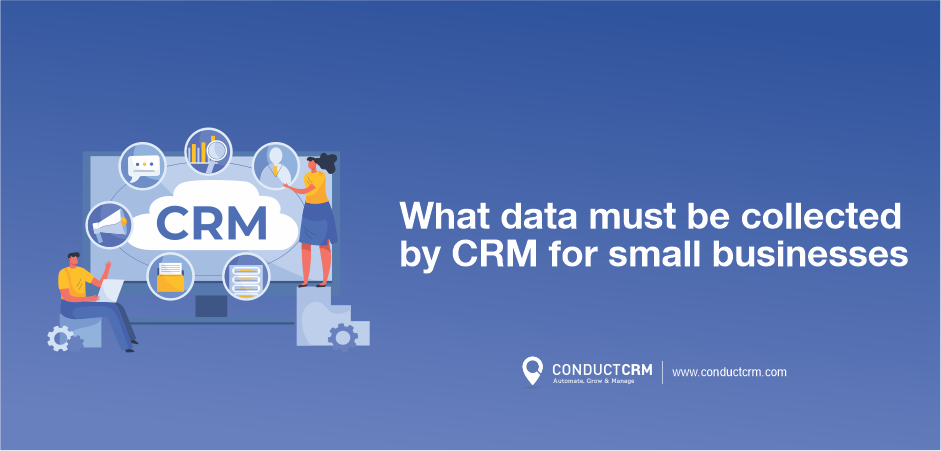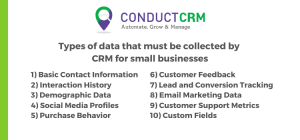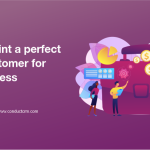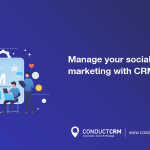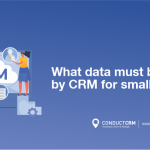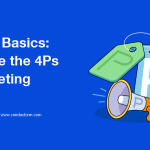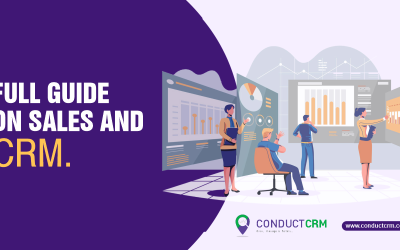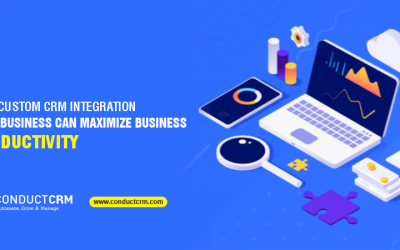What data must be collected by CRM for small businesses?
Introduction
Today’s business landscape is most competitive in the recent era. After the launch of AI tools like ChatGPT, we can see how data is valuable. We are not saying to collect every data of your consumers, just businesses need to understand that some data might be required for the growth of business. If an e-commerce company wants to grow they need some tool or software that collects the data of customers. From the old data of customers, businesses can identify what the next thing that customer wants.
Moreover, Data also helps in the marketing perspective. Nowadays there are some marketing tools that can benefit your business. Example – CRM Software. A Customer Relationship Management (CRM) system is become a more advanced and necessary tool for any business. A well-implemented CRM system can help businesses to build stronger relationships with customers. Email Marketing is one of the solutions for revenue generation. However, CRM helps to streamline your operations, and boost revenue.
Also Read: How Email Marketing Software Boost Your Business
However, to make the most of your CRM, it’s crucial to collect the right data. In this blog post, we’ll explore the essential data that small businesses should collect using their CRM systems.
What is CRM data?
CRM data is typically stored in a CRM system, which is a software tool designed to help businesses organize, track, and leverage customer-related information effectively.
The data can be used to help businesses to organize, track and leverage customer-related information effectively.
Types of Data that stores in your CRM
1) Personal Information Data
This data includes the personal information of any customers. Personal Information like Name, Phone No., Email address, Physical address or company address, etc. However, users’ social media handles are a part of the PI data.
Moreover, Information like date of birth helps to get more engagement with users.
The main importance of this type of data is to give a business to access more ways to connect or get in touch with customers. It also connects the leads in your CRM database. This type of personal data is collected via phone calls, emails, surveys, or any webinars scheduled by the company to share information.
2) Descriptive Data
This type of data is used for getting more information about the customer. here are some examples of descriptive data that can be stored in the CRM.
- Education information
- Martial status
- Number of Family members
- How many assets are available
- Specific hobbies and interests
3) Qualitative Data
This type of data is more focused on the user’s experience and perspectives. Which software is preferable by the user if the company give them two option to choose? What are the users’ requirements for selecting any product or service? What are your shopping experiences while surfing?
We can call Qualitative Data more about customer feedback. However, Feedback might be focused before, during or after the sales. This feedback data can be accessed within mobile applications or websites or any surveys.
4) Quantitive Data
Quantitive data is more focused on numeric values. The main purpose of these data is analytics. Here are some examples of the quantitive data that helps businesses to show how business performing.
- How much turnover
- Renewal rates of customers
- Close rates
- Marketing Cost
- Sales Income
- Merchandise
- Average purchase amount
- Product Valuation
Now that we see what are the types of data now let’s consider what type of data must be collected by CRM to growth of small businesses.
What data must be collected by CRM for small businesses
1) Basic Contact Information
- Names
- Email addresses
- Phone numbers
- Physical addresses
Collecting basic contact information is the foundation of any CRM system. It allows you to identify and reach out to your customers effectively. Ensure that this data is accurate and up-to-date to avoid communication errors.
2) Interaction History
- Communication logs (calls, emails, meetings)
- Purchase history
- Support tickets
Tracking the history of interactions between your business and customers is invaluable. It provides insight into the customer’s journey, helping you understand their needs and preferences better. It helps to market your products.
However, it also focuses on the new product or service launch. With purchase history, you can plan your next marketing strategies.
3) Demographic Data
- Age
- Gender
- Location
- Occupation
Demographic data helps you segment your customer base and tailor your marketing efforts and product offerings accordingly. It allows for more targeted campaigns and personalized experiences.
Personalised marketing campaigns can focus on a particular location. So you do not need a large amount of sum or marketing revenue. You just need a small advertisement plan to go ahead in a particular region.
4) Social Media Profiles
If the customer has no problem storing the social media profiles then businesses must need to consider that. Linking your CRM to customers’ social media profiles can provide a deeper understanding of their online behaviour and interests. It also enables you to engage with them on the platforms they prefer. Just to clarify that you do not have to access personal information like chats or stories. But you can just get the interest of the customers.
5) Purchase Behavior
- Products or services purchased
- Purchase frequency
- Average transaction value
Analyzing purchase behaviour helps you identify your best-selling products or services. Optimize your pricing strategy, and create personalized recommendations for upselling or cross-selling. Average transaction value helps to identify what is the most focused audience for your product. If you are targeting the middle class or the rich people, etc.
However, it shows the which customer is more interested in your products or services.
6) Customer Feedback
- Surveys
- Reviews and ratings
- Feedback forms
Collecting and analyzing customer feedback helps you gauge satisfaction levels. However, it also focuses on identify areas for improvement, and make informed decisions to enhance your products or services.
Moreover, surveys, reviews and ratings helps to increase the overall product experience and make a product more engaging.
7) Lead and Conversion Tracking
- Lead Source
- Conversion date
- Conversion funnel
Understanding where your leads come from and how they convert into customers can help you allocate your marketing resources more effectively and optimize your sales processes.
8) Email Marketing Data
- Open rates
- Click-through rates
- Unsubscribe rates
Integrating your email marketing data with your CRM allows you to assess the effectiveness of your email campaigns and refine your messaging strategy.
9) Customer Support Metrics
- Response time
- Resolution time
- Customer satisfaction ratings
For businesses that provide customer support, tracking these metrics helps improve the quality of service and customer experience.
10) Custom Fields
- Industry-specific data
- Unique customer preferences or information
Depending on your business niche, you may need custom fields to capture data that are specific to your industry or customer base. Ex. If you are shoe company you might need the data of overall usage of one shoe by one user.
Conclusion
However, while collecting data through your CRM is essential, it’s equally important to respect customer privacy and comply with data protection regulations. Always seek explicit consent for data collection, and be transparent about how you intend to use the information.
Remember that the data you collect is only valuable if you use it effectively. Analyze the data to gain actionable insights and make data-driven decisions to improve your small business’s operations, customer relationships, and overall success. A well-implemented CRM system can be a powerful asset for your small business, helping you stay competitive and customer-focused in a rapidly evolving market.
